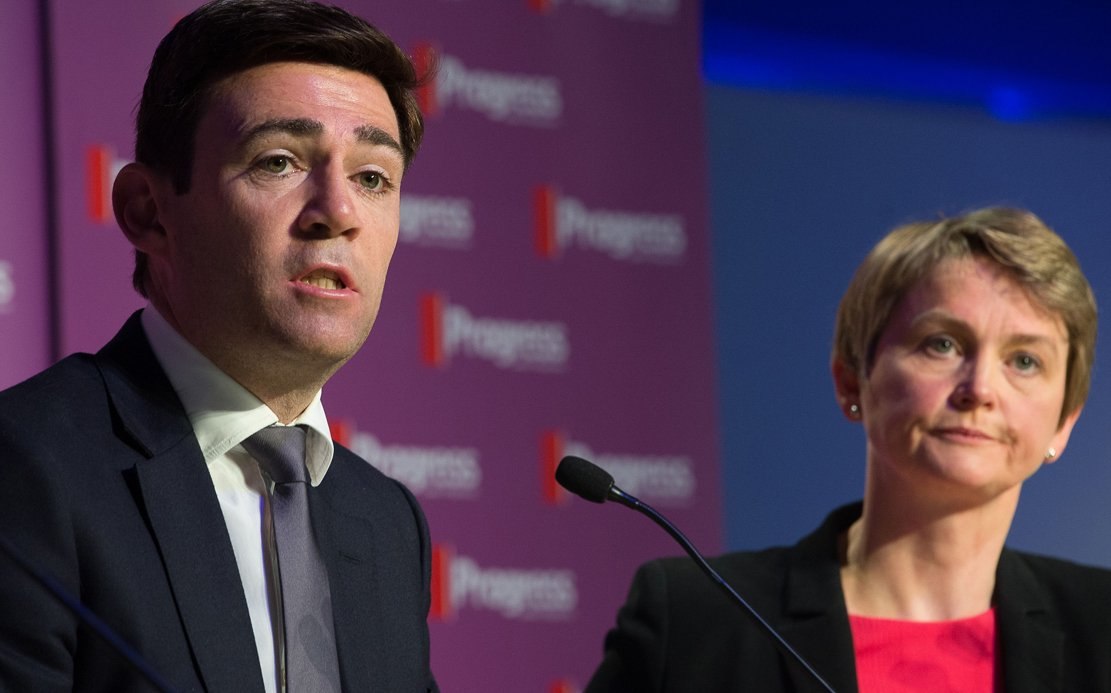The sheer scale of Labour’s drubbing at the election has propelled it into a crisis described by its former policy coordinator, the MP Jon Cruddas, as ‘epic in its scale’.
Not only does the party need to find itself new leaders for both the UK and Scottish parties and work out a strategy for attracting the very different groups of voters who abandoned it. It is also facing an existential question: should it break its ties with the very institutions that helped found it, the trade unions.
This question forced itself into the centre of the party’s post-mortem examination last weekend through the intervention of Len McCluskey, the general secretary of the biggest and most important union affiliated to the Labour Party, Unite. In an interview Mr McCluskey said that it was ‘essential that the correct leader emerges’ or else the unions would start to think about disaffiliating from the party. By ‘correct’ he meant a leader who would represent ‘the voice of organised labour’.
The threat of the unions abandoning the party is a very serious one for the simple reason that it depends upon the unions for 70% of its income: 20% comes from Unite alone.
Yet in response, Jim Murphy, in resigning as leader of the Scottish Labour Party having lost his seat along with all but one of the forty-one Labour MPs in Scotland before the election, said that the support of Mr McCluskey was like ‘the kiss of death’. For good measure he added that the Unite leader could be relied upon to back the wrong horse in a one-horse race.
Murphy and McCluskey have been at each other’s throats for years so these remarks come as little surprise. But the spat between them reflects a deeper difference of analysis as to why Labour lost so badly. Union leaders like Mr McCluskey believe that Labour plunged to its worst result for thirty years because it was not left-wing enough. The evidence they tend to cite for this comes from Scotland where they saw a triumphant Scottish National Party sweeping Labour aside on the back of a more militantly anti-austerity platform. If Labour had been as left-wing as the SNP, they suggest, it wouldn’t have received such a drubbing.
They point too to the mounting challenge to Labour in its northern heartlands from UKIP, a challenge they fear could cost Labour yet more seats in 2020. Labour needs to address issues that concern traditional Labour-voting working people such as immigration that UKIP is using to steal their votes.
But to many in the party this analysis of Labour’s defeat is utterly misguided. They point out that if the party had kept all its seats in Scotland David Cameron would still have been returned to Downing Street with a majority of twelve. Labour’s failure was due not to its being insufficiently left wing but to its being perceived as too left wing, especially in the south of England where (outside London) it virtually disappeared. In the jargon of the moment, Labour needs to appeal to the ‘aspirations’ of such people if it is to regain their votes and it won’t do that by marching to the tune of Len McCluskey, they say.
All these arguments, of course, bear upon the election that will take place over the summer to find a leader to replace Ed Miliband. And it is the influence of the unions over this election that is sharpening the focus upon the unions’ continued links with the party.
Back in 2010 after its last thrashing by the voters, the party elected Ed Miliband over his brother, David, only because of the role of the unions. In the election system then in place, David Miliband won the backing of MPs and of party members in the country but lost out overall because of union backing for Ed. Accusations at the time that the unions had loaded the election to favour their candidate, and the subsequent controversy over union involvement in selecting a candidate for a by-election in Falkirk, led to the system being changed.
This time there is, on the face of it, a simple one-man-one-vote process involving not only party members but also, potentially, ordinary members of the public. The acting leader, Harriet Harman, was keen to advertise this week that anyone can gain a vote in the leadership election without having to become a full party member simply by registering an interest in taking part. More significantly, so can union members for whom an opt-in system of affiliated membership has been designed to allow them their say.
What concerns some in the party, however, is the organisational capacity of the unions to sign their members up in order to continue to exert undue influence by different means. A successful union campaign to sign up their members (and prompt them how to vote) could swamp the votes of ordinary members, they fear.
Len McCluskey has all but endorsed the shadow health secretary, Andy Burnham, as his union’s preferred candidate, saying that Mr Burnham ‘impressed’ him. The Unite union either sponsors or has close links with 147 of the 232 Labour MPs elected to the Commons earlier this month and some commentators see the influence of those links in the flood of nominations for Mr Burnham from MPs. There is speculation that the effect of this may be to deprive other declared candidates of receiving enough nominations from MPs to be able to stand at all.
Mr Burnham would probably have been the front-runner even without the implicit backing of the unions and he has declared that he wishes to champion all shades of opinion within the party. Nonetheless some in the party fear that any dependence he has on union (and specifically Unite) support could lead him, as leader, to adopt policies and positions that could threaten Labour’s ability to rebuild its support in the south necessary to win the next election. In short they fear that because of union influence the party could be heading for a repeat of its failure under Ed Miliband.
At the centre of all this is money. The party’s reliance on the unions for so much of its funding places it in a dependent relationship. It’s one that some Labour figures think needs to change. The veteran Labour MP, Frank Field, said: ‘I don’t blame trade unions trying to influence the Labour Party but I think we should be very clear they are one interest and one interest only and therefore we should move to the state where we have no trade union funding whatsoever’.
For that to become a realistic option, state-funding of political parties would have to be introduced. Advocates of the idea argue that it would also allow greater restrictions to be placed on the Conservative Party’s receipt of donations from rich individuals and companies which, they say, put the Tories in a comparably dependent relationship with the wealthy. Both are bad for democracy, they argue.
If state-funding were to be introduced, then one of the essential links between the unions and Labour would be broken. Some would see this as being of benefit to both the party and to the unions: the former would be able to shake off its reputation as being the poodle of the unions, and the latter would feel free to back other parties on a case-by-case basis. But to others, such a break would mean the Labour Party was no longer the Labour Party.
What’s your view? Do Labour’s links with the unions affect the way you vote, either making you more or less inclined to do so? Do you think the union link is, overall, a help or a hindrance to Labour? And do you support state-funding of political parties or not?










